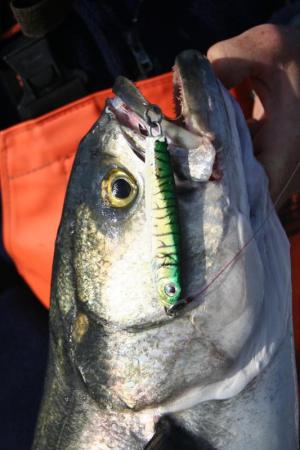Yes, I was a Boy Scout. Back in the Dark Ages of the 1950s. While I never made it to Eagle, I did learn a lot about being prepared for the unexpected.
Those of us who spend time fishing and hunting should be prepared for the serious injury that can befall us during our time afield. Did you know more hunters are killed and injured falling from tree stands than by gunfire? If someone had a heart attack on your boat, would you know what to do? If you have certain health problems, do you carry needed medications with you while fishing, boating or hunting?
If you have a boat, the most important first-aid equipment on board is the VHF radio. Your beloved cellphone is of no use if you venture far from shore. Even if you are close to land, using your phone to dial 911 won’t do much good. They will only direct you to call to the Coast Guard, wasting valuable time.
If someone is seriously ill or injured, the first thing you have to do is assess the situation, try to stop any bleeding, then call the Coast Guard on the VHF and tell them what is going on. If the injured or ill person needs immediate attention, the Coast Guard will dispatch a helicopter to your position and remove the person from the boat. You need to keep informing the Coast Guard of your position as you move the boat toward their direction. You might be asked to turn on your EPIRB to send your position to the helicopter.
During the time it takes for this to happen, you should continue to treat the victim as best you can. Use pressure to stop any bleeding, and only resort to a tourniquet as a last resort.
I know this may sound silly, but it wouldn’t hurt to take a first-aid course to learn how to provide emergency care for a heart attack victim or someone choking on food. When I had my captain’s license, I had to have a complete course including how to perform CPR, treat bleeding and immobilize a broken bone. All of this is good to know, not only on a boat or out in the woods, but around the house or on the road.
One of the most common accidents on a fishing trip is getting a hook in your body. If it is in past the barb, the best thing to do is cut off any other hooks if it is a treble, treat the area with an antiseptic, and head for the dock. I do not suggest trying to remove the hook while at sea.
Having said that, I did see the mate on an offshore trip impale himself with a very big hook just as the day began. The hook, with a ballyhoo attached, went into his upper leg well past the barb.
Once he had all the lines out, he began by removing the bait and then cutting off the shank of the hook above where it went into his leg. He then pushed the hook up through his leg until the barb came out; then he pulled out the rest of the shank. Why he didn’t pass out during this operation I will never know. A splash of antiseptic, a couple of Band-Aids and he was back at work. I do not recommend this treatment for anyone.
Fishermen are always playing around with sharp objects. Knives used for cutting bait should not be the same as the ones used to filet fish. Bait knives should be sturdy to cut through skin and bones without bending. Filet knives should be thin and flexible. Use the wrong knife for the job, and blood will flow.
Since I take blood thinners, flow is not exactly the right word for what happens when I cut myself. Flood is more to the point. For this reason, I carry WoundSeal, a powder that forms a scab on the cut and stops the flood. Then I can cover the wound with a Band-Aid.
I always keep bug spray handy. I use a product with as much DEET as possible, and I keep ITCH-X in my first-aid kit for relief of bug bites. Inshore or offshore, biting flies can be a major problem. Those who are allergic to certain bug bites should carry an EpiPen for relief.
If you own and run a boat, you are responsible for everyone on board. This is true even if you are not a licensed captain, and you’re just taking a few friends out fishing.
That is a serious responsibility, and you should consider doing everything you can to be prepared for whatever emergency may arise.





















































